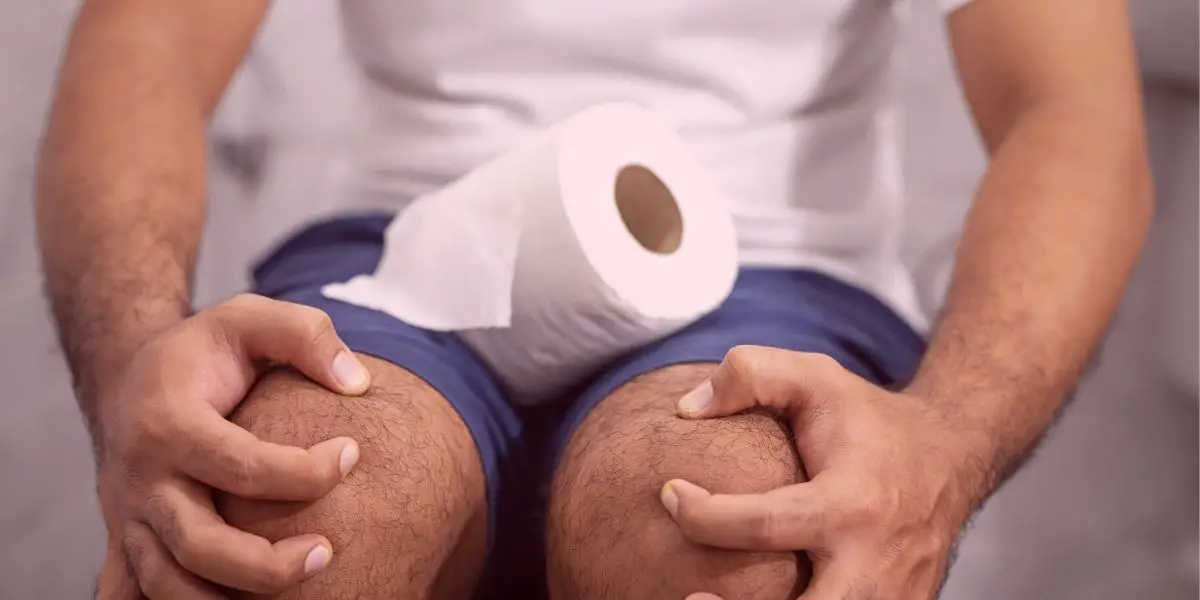Have you ever wondered if popcorn is hard to digest? Popcorn is a fantastic whole-grain snack with more antioxidants than some fruits and vegetables. Furthermore, it has a high fiber content, which plays a vital role in its movement through the body.
Is Popcorn Hard to Digest?
For most people, popcorn is not hard to digest. However, it can be problematic for those who have certain medical conditions that have difficulty with insoluble fiber. Other factors that contribute to making it harder to digest include the method of preparation and chosen toppings.
There are two types of fiber in food: soluble and insoluble. Soluble fiber breaks down in the presence of water in the digestive system to form a gel substance. You can find it in beans, carrots, and psyllium. It helps to control cholesterol and sugar levels.
Insoluble fiber can’t be broken down and instead travels intact through the digestive system. Therefore, it helps push food through the digestive system and increases the volume of stool to prevent constipation or diarrhea. This is the type of fiber found in popcorn.
Popcorn contains approximately 1.16 grams of fiber for every 8 grams (1 cup) of popcorn. Therefore, with the recommended serving of 3 cups, you get 3.48 grams. This can help you get closer to the recommended daily amount of 25 grams for women and 38 grams for men.
Effects of Fiber in Popcorn
If you consume popcorn regularly, these are some of the benefits you can gain from the fiber:
- Increased ease of bowel movements: The fiber makes the stool softer and more solid.
- Controlled blood sugar levels: It slows sugar absorption and lowers the risk of diabetes.
- Moving closer to your goal weight: Popcorn can be very filling, low in calories, and more satisfactory.
- Improved bowel health: It reduces the chances of diverticular conditions and hemorrhoids, which prevents colon disease.
However, if you overeat popcorn, the fiber content may lead to stomach discomfort. You may experience pain, bloating, or irregular bowel movements. This is because popcorn is hard to digest.
Furthermore, if you suffer from conditions such as Crohn’s disease, colitis, or diverticulitis, eating popcorn regularly may cause your symptoms to worsen. You may need to avoid this snack altogether or consult your doctor on the way forward.
How Do You Make Popcorn Easy on Your Stomach?

Since the discovery of popcorn, many methods of preparation have been found. However, to enjoy popcorn as a healthy, nutritious, and nourishing snack that is easy on your stomach, try these tips:
Stick To Air-Popped Popcorn
Preparing popcorn using an air popper is the best option.
Firstly, it has the least amount of calories for more volume. Secondly, it is low in fat, unlike buttered popcorn. Buttered popcorn has been shown to increase acid reflux and can contribute to why popcorn is hard to digest.
If you want to add healthy fats to your popcorn, you can cook it on the stovetop with two to three tablespoons of olive oil or avocado oil.
Avoid Too Many Toppings
Toppings are great for making popcorn more edible. However, you want to consider the effect on your health when choosing. Excess sugar, for example, can reduce the healthy gut bacteria, leading to leaky gut syndrome.
Furthermore, you should limit the amount of cheese you use, especially if you are lactose intolerant. Citrus flavors such as lemon and lime may trigger acid reflux as they irritate the stomach lining.
Stick to plain popcorn or lightly seasoned popcorn. You can use gut-friendly spices such as ginger, turmeric, cardamom, bay leaves, and cinnamon.
Is Popcorn Good for Digestive System?
Yes, popcorn is good for your digestive system if you don’t have any gut disease that is made worse by a high-fiber diet. These include Crohn’s, diverticulitis, some types of IBS, and colitis.
Furthermore, eating too much popcorn, even with these conditions, can lead to symptoms. These are discomfort and pain, diarrhea, constipation, gas, and bloating. However, by using these tips, you can reduce these symptoms:
- Take a lot of water: This is needed to make the bulky stool softer and help it move smoothly along the gut.
- Increase your regular fiber intake: Adding fiber gradually will allow your gut bacteria to adjust and reduce gas or bloating.
- Incorporate a balanced diet: It will give you a varied source of nutrients and fiber, which exposes your gut to a wide variety.
- Use fresh seeds to make your popcorn: The outer coating forms the insoluble fiber, which is the reason popcorn is hard to digest. Therefore, when fresh, it’s easier to digest.
Other Nutrients in Popcorn
Popcorn is a nutrient-dense snack that is packed with minerals and vitamins. It is high in magnesium, phosphorus, and potassium. In a serving size of 24g, it offers 35mg, 86mg, and 79mg, respectively. It is also a great source of calcium, iron, zinc, and sodium, among other minerals.
Folate is an essential vitamin that aids in the formation of red blood cells and the prevention of neural tube defects during pregnancy. Popcorn has a great amount of folate with 7 micrograms for a serving of 24g. Other important vitamins found in popcorn include:
- Niacin
- Thiamin
- Riboflavin
- Vitamin A, E, K and B6
Lastly, popcorn is a fantastic protein source with 3g for a serving size of 24g. Furthermore, it is low in fat, making it low in calories.
How Long Does Popcorn Stay On Your Stomach?
Popcorn is a high-fiber snack. As such, it takes about 18 to 24 hours for the popcorn to move through your digestive system and into your stool.
You should keep this in mind when scheduling your popcorn snacks into your diet. It is wise to wait at least 24 hours between snacks to avoid any digestive issues. Furthermore, drinking a lot of water can help the popcorn move faster through the digestive system.
To mitigate any discomfort, you should also avoid eating too much popcorn. The recommended maximum daily serving is 3 cups (24g). Anything above this may cause problems. If you want to make it more filling, consider serving it alongside something else.
A great example is adding whole nuts or nut butter to your popcorn. These are high in protein and have a great number of healthy fats that will keep your hunger at bay for longer.
Sources
https://theheartandbrain.com/how-long-does-it-take-to-digest-popcorn/
https://www.mayoclinic.org/healthy-lifestyle/nutrition-and-healthy-eating/in-depth/fiber/
https://sydneygastroenterologist.com.au/blog/how-too-much-sugar-affects-the-gut-microbiome/
https://www.houseofwellness.com.au/health/nutrition/herbs-spices-for-gut-health
https://www.livestrong.com/article/499913-stomach-pains-after-eating-popcorn/
https://www.medicalnewstoday.com/articles/324763#nutrition
https://www.healthdigest.com/390969/surprising-side-effects-of-eating-too-much-popcorn/




